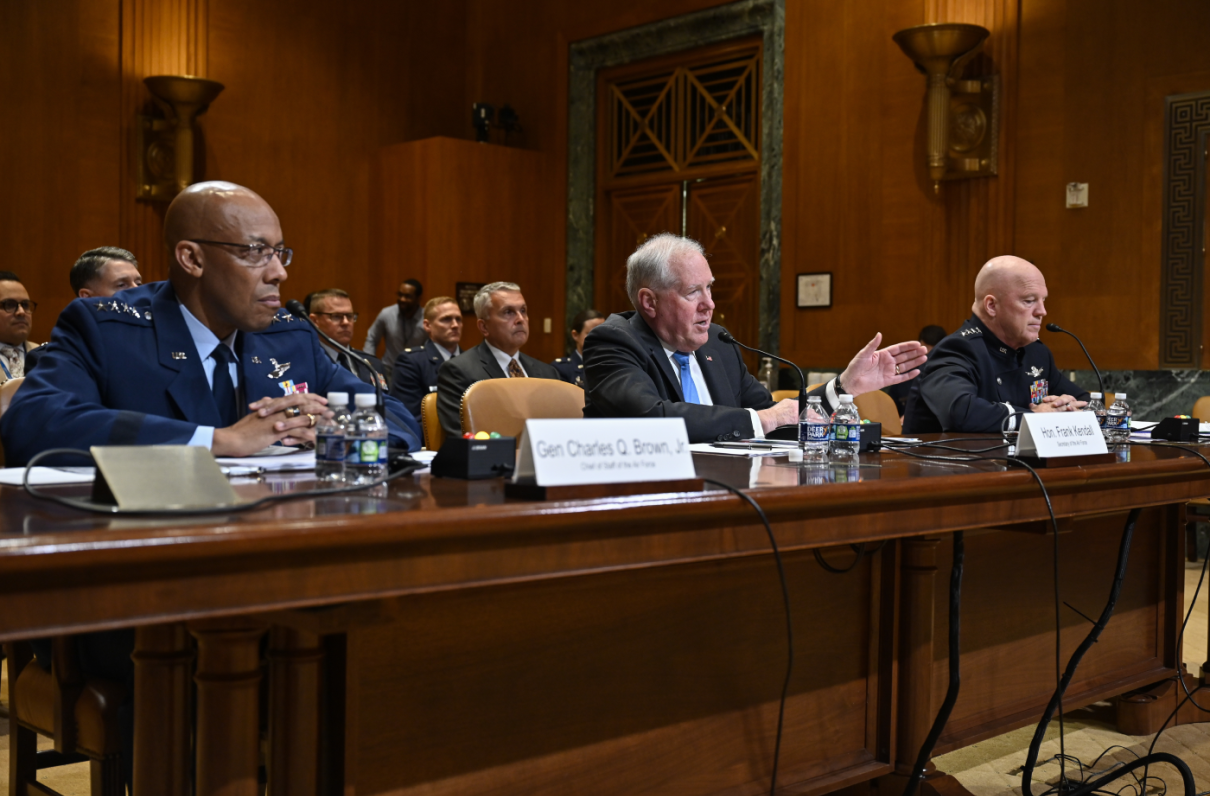Just like the flowers that come after the spring rain, every May brings the beginning of work in Congress on the annual authorizations and appropriations for the upcoming fiscal year.
So, what is the significance of these processes to the uniformed services and veteran communities? In other words, why is this important to MOAA members?
An authorization bill establishes new policies and programs for a federal agency and can reauthorize programs set to expire. For MOAA’s purposes, the National Defense Authorization Act (NDAA) is the most critical of these bills, as it affects DoD policies and programs.
Unlike an authorization bill such as the NDAA, annual appropriations make up the federal budget. If Congress does not pass all 12 appropriation bills by Oct. 1, which is the start of the new fiscal year, then it could result in a government shutdown.
[RELATED: TRICARE Changes, Pay Raise Top MOAA Priorities as NDAA Timeline Takes Shape]
Without the necessary authorizations and appropriations, the federal agencies that oversee the eight uniformed services would not have the funding for the annual military pay raise, high-quality health care coverage, and new quality-of-life programs for servicemembers and their families, along with many other support programs and benefits necessary for an all-volunteer force.
So, Where Are We?
May saw a flurry of key congressional hearings, in both the House and the Senate, connected to the FY 2023 NDAA and budget. Additionally, both chambers have publicly promised their committees, with jurisdiction, will begin the markup process for each chamber’s NDAA in mid-to-late June. Key highlights from the congressional hearings for the NDAA and budget include:
Uniformed Services Pay Raise: During the week of May 16, House and Senate appropriators conducted hearings about the FY 2023 budget. These hearings included a House Appropriations Subcommittee on Defense hearing about the Army’s FY 2023 budget request. Of note, the requested budget included the necessary funds for the 4.6% pay raise for its servicemembers.
MOAA is heartened to see the services requesting the necessary funds for next year’s pay raise; however, MOAA has maintained the 4.6% rate set by the Employment Cost Index should be the bare minimum for next year. MOAA will be closely monitoring the pay raise funding for all branches of the uniformed services, including the Coast Guard, U.S. Public Health Service, and NOAA.
[TAKE ACTION: Urge Your Legislators to Ensure the 4.6% Military Pay Raise as a Minimum]
Continuing Resolutions: At a May 17 hearing of the Senate Appropriations Subcommittee on Defense, congressional witnesses and subcommittee members emphasized the negative impacts continuing resolutions (CRs) have on military readiness, especially with increasing inflation rates.
In the last decade, Congress generally has not kept its own schedule when it comes to passing a budget by the start of the fiscal year. CRs waste billions of dollars while also disrupting day-to-day military life – from making a PCS move to planning a training exercise. A forcing function or a change of schedule, such as a two-year cycle, is needed to regain predictability and end the irresponsible cycle of CRs.
[RELATED: FY 2023 Appropriations: Will Congress Deliver, or Delay?]
Military Housing: On May 18, the Senate Appropriations Subcommittee on Military Construction and Veterans Affairs held a hearing on military housing and the ongoing challenges servicemembers and their families face to access safe, affordable housing. Topics discussed included the basic allowance for housing (BAH) and whether the services are doing enough to support military families. With soaring housing costs and the failed privatized housing partnership program – which led to tragic medical problems for families – significant investment is needed to correct the current trajectory and reconsider the partnership.
MOAA supports legislative efforts to restore BAH to 100% of estimated housing costs and urges DoD to implement an updated BAH calculation method that more quickly and accurately reflects changes in the market.
[RELATED: These Bills Will Help Military Families as They Face a Housing Crisis]
Child Care: At a May 19 hearing of the House Appropriations Subcommittee on Military Construction, Veterans Affairs, and Related Agencies, the subcommittee chair and ranking member – Rep. Debbie Wasserman Schultz (D-Fla.) and Rep. John Carter (R-Texas), respectively – said funding for quality-of-life programs, like child care, represents a top priority for the FY 2023 spending bill. Expanding the family child care in-home provider program fee subsidy under the Child Care Aware program and authorizing Dependent Care Flexible Spending Accounts (DCFSAs) all require attention in the NDAA.
[RELATED: Program to Help Military Families Pay for In-Home Child Care Off to a Slow Start]
While we were pleased to see an expansion of the In-Home Child Care program in the FY 2022 NDAA, additional consideration must be given to broadening provider requirements to include au pairs.
Reserve Component: On May 24, the House Appropriations Subcommittee on Defense held a hearing to discuss the reserve component in the FY 2023 budget. Witnesses underscored the importance of predictable, and timely, funding for the operations and planning of the services’ reserve components. MOAA remains dedicated to ensuring the reserve component receives parity on pay and benefits with active duty servicemembers.
DoD Health Care: On May 25, the House Appropriations Subcommittee on Defense held a hearing on the Defense Health Program (DHP) and military medical readiness. Committee members voiced numerous concerns about planned military medical billet reductions, echoing MOAA’s messaging. While MOAA was happy to see DoD announce a one-year strategic pause on billet cuts, concerns remain about military treatment facility (MTF) restructuring plans and the potential impact on access to care.
[RELATED: Top Officer Sounds the Alarm Over Proposed Military Medical Cuts]
What’s Next?
Congress has only just begun its work on the FY 2023 NDAA and budget, and there is still much more both chambers need to accomplish. Both chambers likely will focus most of their efforts on marking up their respective versions of the NDAA before the end of June.
MOAA will continue to engage with members of Congress to ensure the needs of servicemembers, veterans, their families, and survivors are fulfilled in this upcoming year’s NDAA and budget.
Be sure to read The MOAA Newsletter (manage your newsletter preferences at this link) and visit MOAA.org for the latest updates on the NDAA and MOAA’s other advocacy initiatives.

